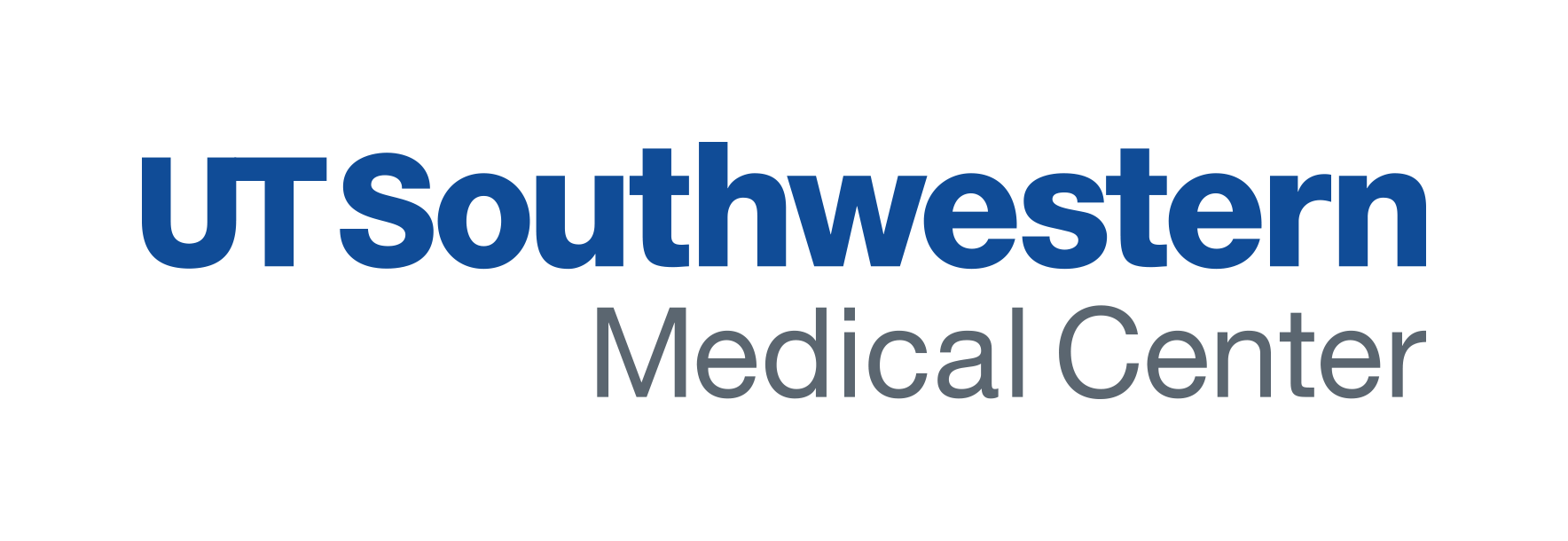
Progress Report from UT Southwestern Medical Center Grant
We are proud to share this progress report from UT Southwestern Medical Center to share their research and innovations as part of their grant partnership with the Herb Kosten Pancreatic Cancer Charitable Fund.
2022 PROGRESS REPORT
Prepared for: HERB KOSTIN PANCREATIC CANCER CHARITABLE FUND
Prepared by: NISA KUBILUN, M.D.
On behalf of UT Southwestern Medical Center, I would like to thank the trustees of the Herb Kosten Pancreatic Cancer Charitable Fund for supporting clinical innovation and discovery in pancreatic cancer research. I am pleased to share an update from Nisa Kubiliun, M.D., on the progress in the Pancreatic Cancer Prevention Program (PCPP).
Since the program began, Dr. Kubiliun and her team have cared for more than 3,200 patients at increased risk of developing pancreatic cancer and collected nearly 600 serum samples to contribute to a deeper understanding of the pancreatic disease process. Over the last year, Dr. Kubiliun and her team have compared diagnostic performance of next-generation sequencing (NGS), an emerging adjunctive test performed on pancreatic cyst fluid with high sensitivity. The preliminary results demonstrate that NGS of pancreatic fluid is associated with pancreatic adenocarcinoma and high-grade dysplasia, and therefore may improve sensitivity over the current standard of care techniques. In addition, Dr. Kubiliun has received IRB approval to begin enrolling patients in a new, cross-sectional study. Its primary aim is to perform whole genome sequencing on collected biospecimens in order to better understand heritable traits that may explain the high propensity for developing pancreas cancer.
We are deeply grateful for your partnership in accelerating the world’s understanding of this disease and preventing its occurrence. With your support, we are one step closer to transformational change in the way the world approaches pancreatic cancer prevention.


2022 PROGRESS REPORT
Clinical Innovation in Pancreatic Cancer Prevention
Prepared for: HERB KOSTIN PANCREATIC CANCER CHARITABLE FUND
Prepared by: NISA KUBILUN, M.D.
Shaping the Future of Medicine
UT Southwestern Medical Center’s Pancreatic Cancer Prevention Program (PCPP) provides a home for individuals at high risk of developing pancreatic cancer. In light of the poor outcomes related to the treatment of pancreatic cancer, we feel that the most important strategy at the present time is to prevent patients from ever developing the deadly disease. Our multidisciplinary team works together to create a comprehensive surveillance plan for each patient in a single visit. Through close monitoring, program experts can provide patients with peace of mind, ensuring their risk remains low. The PCPP has two primary goals:
- To identify patients with known risk factors for pancreatic malignancies and develop personalized plans of action; and
- To learn from the experience of longitudinal surveillance in order to further our understanding of how to prevent pancreas cancer.
Since the launch of our program in 2016, we have now cared for more than 3,200 patients at increased risk of developing pancreatic cancer, either secondary to a genetic mutation or to a cystic lesion of the pancreas. Nearly one third of this population has imaging surveillance over the span of at least three years, which provides our team unique insight into the natural history of cystic lesions which can be precursors to pancreas cancer. As part of our partnership with the UT Southwestern Biorepository we have collected serum samples on nearly 600 patients and pancreatic fluid on over 100 patients with cystic lesions of the pancreas. Each of these patients has contributed to a deeper understanding of the pancreas disease process. We are then able to correlate these specimens with robust epidemiologic and clinical data points to further identify risk factors which contribute to the development of pancreas cancer.
Innumerable data points and tissue samples have been banked from thousands of patients. This data set is one of the largest in the world, and has the potential to unlock many of the questions which currently exist regarding the development of pancreatic cancer.

*Dr. Kubiliun performing an endoscopy.
To best analyze the data, we have maintained our relationship with UT Southwestern’s Department of Population and Data Sciences. This collaboration will significantly advance our knowledge of the disease so we may identify the most effective strategies for patients at increased risk of pancreas cancer.
PROGRESS
Over the last several years, we have developed a robust database which now serves as the foundation for the research arm of the PCPP. The database couples imaging data, molecular data, family history, and data from the Cancer Genetics team. We also chose to include natural history of pancreatic cysts, the molecular signature of worrisome cysts, and clinical risk factors. By integrating these data points, we are now able to describe the natural history of pancreatic cysts in our cohort with a focus on the factors which may lead to progression of the disease. We are excited to begin analyzing blood specimens in an attempt to identify the molecular and genetic factors which put this population at increased risk of developing pancreatic cancer.
NISA KUBILIUN, M.D.
Clinical Chief
Division of Digestive and Liver Diseases Department of Internal Medicine

Most recently, the first publication to come from our efforts was submitted and accepted in abstract form for presentation at the national meeting for Digestive Disease Week (DDW). In addition, next-generation sequencing (NGS) is an emerging adjunctive test performed on pancreatic cyst fluid with high sensitivity and specificity for differentiating mucinous and non-mucinous cysts.
However, reliance on NGS to guide surgical decision making has not been described in the literature. Our recent studies compared the diagnostic performance of NGS and cytology in detecting high-grade dysplasia and pancreatic cancer in pancreatic cysts. We found that NGS of pancreatic fluid is associated with pancreatic adenocarcinoma and high grade displasia and may improve sensitivity over current standard of care techniques. Our utilization of NGS changed the appropriate management of care in 75% of patients analyzed. While larger studies incorporating NGS in pancreatic cyst management are needed, our preliminary results are promising.
We have also received IRB approval to begin enrolling patients in an observational cross sectional study at UT Southwestern entitled, “Identifying Novel Heritable Risk Factors for the Development of Pancreatic Cancer.” Patients will be identified using interactions with the UT Southwestern Pancreatic Cancer Prevention Clinic, the Pancreatic Cancer Multi-Disciplinary Program, the Harold C. Simmons Comprehensive Cancer Center, and the Cancer Genetics Program. Patients will be asked to submit blood samples, which will be banked and then subject to whole genome sequencing and other genetic-based testing to test the hypothesis that there are previously unknown heritable traits that may explain the high propensity for developing pancreas cancer.
This trial will leverage the basic science strength of investigators at UT Southwestern, in which one partner continues to be the lab of Ravikahnth Maddipati, M.D.
IMPACT
As screening programs become more common across the country, we are beginning to see improved outcomes for high-risk individuals in these programs. Specifically, cancers detected as part of a screening program tend to be smaller and have a better prognosis than if a cancer were detected once a person had symptoms. These cancers are often resectable surgically, which again is very uncommon for cancers detected outside of screening programs, and overall survival for these individuals is dramatically better than when these cancers are diagnosed outside of a surveillance program. At UT Southwestern, we have one of the largest and most robust prevention programs in the country. With more than 3,700 patient encounters, hundreds of blood samples, and cyst fluid specimens, we are well-positioned to identify factors in our cohort that predict progression to pancreatic ductal adenocarcinoma (PDAC) and preventative factors, which may protect against development of this deadly disease. Our ongoing partnership with the Department of Population and Data Sciences continues to allow us to aggregate our data, describe the natural history of our patient cohort, and move the needle in preventing this deadly disease.
Our program is committed to preventing pancreatic cancer in every patient for whom we have the privilege of caring. With the extraordinary amount of collected data, we plan to advance knowledge of the disease so we may identify the most effective strategies for each patient. Knowing who is at risk is the first step to preventing the disease. By identifying risk factors and understanding which lesions are at highest risk of progression, we can focus our efforts on those individuals in the highest risk categories, rather than screening for pancreatic cancer across the general population. Thus far, we have laid the critical foundation and infrastructure to accelerate our understanding of this disease, particularly for the patients who have been identified to be at risk and in need of ongoing surveillance.
WHAT’S NEXT?
None of this would have been possible without the generous support of the Herb Kosten Pancreatic Cancer Charitable Fund. Moving forward, we hope to begin recruiting patients to our observational cross sectional study and performing whole exome sequencing on the biospecimens we collect. We will also continue to publish on and expand the role of next generation sequencing in predicting the risk of cystic neoplasms in the pancreas. Together with the Department of Population and Data Science, we will continue to leverage our robust database of imaging data, molecular data, family history, and data from our Cancer Genetics team.
Thank you for your generous support of efforts aimed at creating a high-risk signature that can easily be identified across individuals with pancreatic cancer. We are truly grateful.
For more information, please contact:
MICHELE MYERS
DIRECTOR OF DEVELOPMENT
FOR CANCER PROGRAMS
214-648-1669 | michele.myers@utsouthwestern.edu
